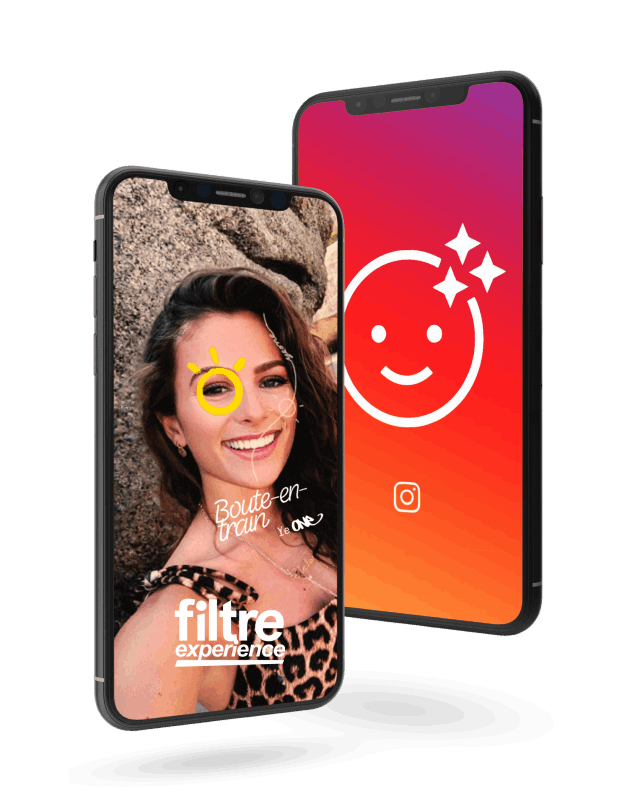Meta and Virtual Reality
Welcome to the world of Meta and Virtual Reality (VR), where the boundaries between the digital and physical worlds are blurred. In this article, we’ll dive into the fascinating intersection of these two technologies, exploring their unique features, benefits, and possibilities. So buckle up, put on your headset, and let’s explore this exciting realm together.
Understanding Meta and Virtual Reality
Before we dive into the convergence of Meta and VR, let’s first define what these technologies are and how they work independently.
Defining Meta Reality
Meta Reality, also known as Augmented Reality (AR), is a technology that overlays digital information onto the physical environment. AR enhances our perception of the real world by providing us with additional information, such as text, images, and video, that is superimposed onto the objects around us. This technology is widely used in smartphone apps, such as Snapchat filters and Pokémon Go, but also has potential applications in industries such as healthcare and education.
For example, in healthcare, AR can be used to help doctors and surgeons visualize and interact with a patient’s anatomy in real time, allowing for more accurate diagnoses and surgical procedures. In education, AR can be used to create interactive and immersive learning experiences that help students better understand complex concepts.
Defining Virtual Reality
Virtual Reality, on the other hand, is a totally immersive experience that transports users to a simulated environment. Unlike AR, VR provides users with a sense of presence in a virtual world, where they can interact with objects and people in a way that feels real. This technology is used in gaming and entertainment, but also has applications in fields such as education and therapy.
For example, in education, VR can be used to create virtual field trips that allow students to explore historical or scientific sites without leaving the classroom. In therapy, VR can be used to treat phobias and anxiety disorders by exposing patients to virtual environments that trigger their fears in a controlled and safe setting.
The Evolution of Meta and Virtual Reality Technologies
Both Meta and VR have come a long way since their inception, with advancements in hardware, software, and AI driving their evolution. Today’s headsets and devices are more lightweight, affordable, and user-friendly than ever before, making these technologies more accessible to a wider audience.
One of the most significant advancements in Meta and VR technology is the development of mixed reality (MR), which combines elements of both AR and VR. MR allows users to interact with both digital and physical objects in real time, creating a seamless integration of the virtual and real worlds.
The future of Meta and VR is exciting, filled with potential applications in various industries and domains. From improving healthcare and education to transforming the way we work and play, these technologies have the power to revolutionize our lives in countless ways.
The Convergence of Meta and Virtual Reality
While Meta and VR have unique features and applications, there are also shared characteristics and goals that make their convergence inevitable.
Meta is a technology that enhances our perception of the world around us by overlaying digital information onto the physical world. This technology has a wide range of applications, from enhancing productivity in the workplace to providing interactive educational experiences. On the other hand, VR creates an entirely new world for users to explore. This technology is commonly used in gaming, but it also has applications in education, healthcare, and even therapy.
Shared Characteristics and Goals
Both Meta and VR aim to enhance our perception of reality and provide us with new ways of interacting with the world. They both rely on hardware, software, and AI to create immersive experiences that feel real. However, the key difference is that Meta enhances our existing perception of the world, while VR creates an entirely new world to explore.
One of the shared goals of Meta and VR is to create experiences that are more engaging and interactive than traditional media. By immersing users in a digital environment, these technologies can provide a level of engagement that is not possible with traditional media. This can lead to increased learning, improved productivity, and even enhanced empathy for others.
Technological Advancements Driving Convergence
The convergence of Meta and VR is driven by advancements in technology, particularly in the areas of AI and machine learning. As these technologies become more advanced, they will enable greater levels of interactivity, immersion, and personalization in Meta and VR experiences. This will make it possible to create experiences that are both real and unreal at the same time, blurring the boundaries between the two.
For example, AI can be used to create personalized experiences for each user. By analyzing data about the user’s preferences and behavior, AI algorithms can create experiences that are tailored to their unique needs. This can lead to a more engaging and immersive experience for the user.
The Role of Artificial Intelligence in Meta and Virtual Reality
AI is a key driver of the convergence of Meta and VR, as it enables these technologies to personalize and adapt to each user’s unique preferences and needs. AI can be used to create smart environments that are responsive to the user’s actions, providing them with real-time feedback and information. AI can also be used to create intelligent agents that can interact with users in realistic and meaningful ways. This will enhance the sense of presence and immersion in Meta and VR experiences.
Another area where AI is playing a role in the convergence of Meta and VR is in the development of natural language processing and speech recognition technologies. These technologies enable users to interact with digital environments using natural language, making the experience more intuitive and immersive.
In conclusion, the convergence of Meta and VR is an exciting development in the world of technology. As these technologies continue to evolve and improve, we can expect to see even more innovative and engaging experiences that blur the boundaries between the real and the digital world.
Applications and Use Cases
The convergence of Meta and VR has the potential to revolutionize various industries and domains, including:
Gaming and Entertainment
Meta and VR are already being used in gaming and entertainment, providing users with immersive experiences that feel real. The convergence of these technologies will take these experiences to the next level, enabling greater levels of interactivity, personalization, and socialization.
Imagine being able to step into your favorite video game and interact with the characters and environments in a way that feels completely real. With the convergence of Meta and VR, this will become a reality. You’ll be able to explore virtual worlds in a way that feels like you’re actually there, and interact with other players in a way that feels like you’re in the same room.
Education and Training
Meta and VR have the potential to revolutionize the way we learn and train, enabling us to explore complex concepts and ideas in a hands-on way. The convergence of these technologies will make it possible to create immersive learning environments that are tailored to each student’s learning style and needs.
Imagine being able to explore the human body in 3D, or travel back in time to experience historical events firsthand. With the convergence of Meta and VR, these types of experiences will become possible. Students will be able to learn in a way that feels more like play than work, and educators will be able to create customized lesson plans that are tailored to each student’s unique learning style.
Healthcare and Therapy
Meta and VR are already being used in healthcare and therapy, providing patients with immersive experiences that can help alleviate pain and anxiety. The convergence of these technologies will enable healthcare professionals to create customized treatment plans that are tailored to each patient’s needs.
Imagine being able to use VR to help patients overcome their fear of flying, or to help them manage chronic pain. With the convergence of Meta and VR, these types of treatments will become more accessible and effective than ever before. Healthcare professionals will be able to create personalized treatment plans that take into account each patient’s unique needs and preferences.
Social Interaction and Communication
The convergence of Meta and VR will enable us to interact and communicate with others in ways that are more immersive, realistic, and meaningful. This will enable us to connect with people from all over the world, regardless of where we are physically located.
Imagine being able to attend a virtual concert with friends who live on the other side of the world, or to explore a virtual museum exhibit with colleagues from different countries. With the convergence of Meta and VR, these types of experiences will become possible. We’ll be able to connect with others in a way that feels more like we’re in the same room, even if we’re thousands of miles apart.
Ethical Considerations and Challenges
As with any new technology, the convergence of Meta and VR raises ethical concerns and challenges that must be addressed. While these technologies have the potential to revolutionize the way we interact with the world, it is important to consider the impact they may have on individuals and society as a whole.
Privacy and Data Security
Meta and VR technologies rely on collecting and processing large amounts of personal data, raising privacy and data security concerns. It is important to ensure that user data is collected and stored in a secure and ethical way. This includes implementing robust security measures to prevent data breaches, as well as being transparent about how user data is collected and used.
Additionally, it is important to consider the potential consequences of data misuse. For example, if user data is sold to third-party advertisers without their consent, it could lead to targeted advertising that feels invasive and unethical.
Digital Addiction and Mental Health
The immersive and addictive nature of Meta and VR experiences raises concerns about digital addiction and the potential impact on mental health. While these technologies can be incredibly engaging and entertaining, it is important to develop guidelines and best practices that promote responsible use of these technologies.
One potential solution is to limit the amount of time users spend in VR environments, or to encourage breaks and time away from the technology. Additionally, it may be helpful to provide resources and support for individuals who struggle with addiction or mental health issues related to technology use.
Accessibility and Digital Divide
Meta and VR technologies require access to expensive hardware and software, creating a digital divide between those who can afford to use them and those who cannot. It is important to ensure that these technologies are accessible to everyone, regardless of socio-economic status or geographic location.
One way to address this issue is to provide affordable or free access to VR technologies in public spaces, such as libraries or community centers. Additionally, efforts can be made to develop more affordable hardware and software, or to provide financial assistance to individuals who cannot afford these technologies on their own.
Ultimately, it is important to ensure that the benefits of Meta and VR technologies are available to everyone, regardless of their background or financial situation.
Conclusion
The convergence of Meta and VR is a fascinating and rapidly evolving field, filled with potential applications in various industries and domains. As these technologies continue to evolve and improve, we can expect to see even more exciting and innovative use cases emerge. However, it is important to address the ethical concerns and challenges that come with these technologies, to ensure that they are developed and used in a responsible and ethical way.








